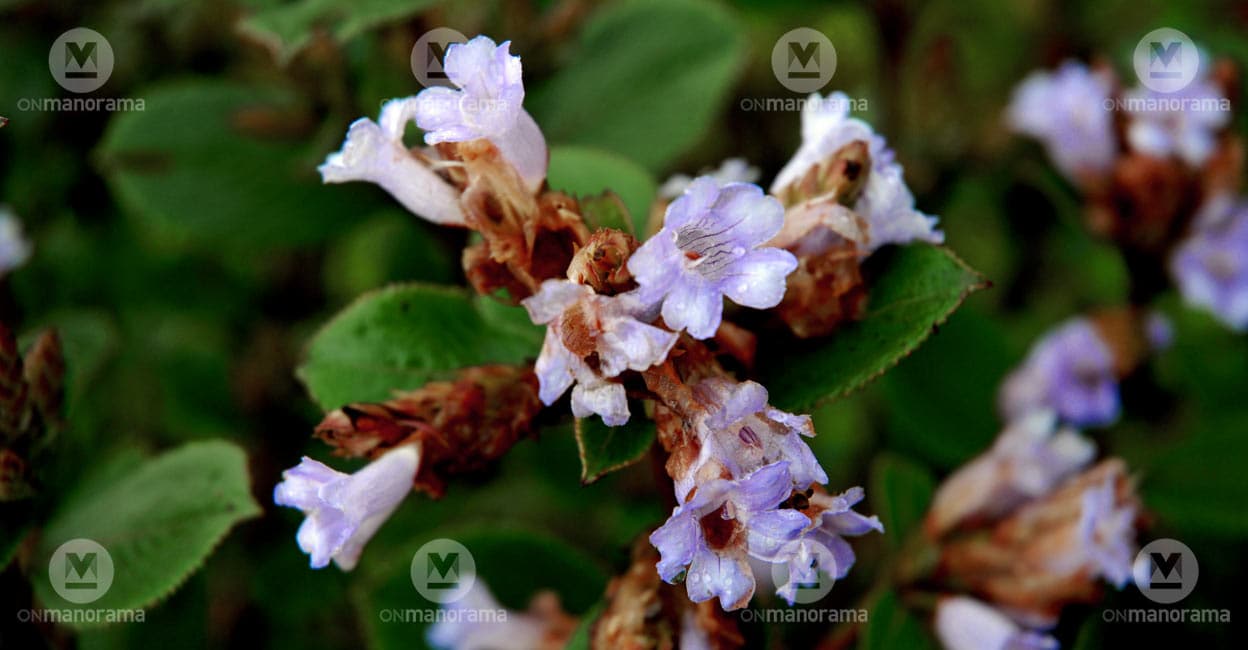Neelakurinji dries out; to reappear after 12 years

Mail This Article
The travellers' circles of social media in Kerala had been ruled by one blue miracle in the past month – Neelakurinji. The purplish-blue flowers bloomed in a remote Idukki destination got featured on umpteen reels, photography pages and even post-wedding photoshoots. Now, the misty peak went back to its original green blanket with the flowers scattered across the bushes wilting.
The Engineer Hill at Kallippara in Santhanpara panchayat of Kerala’s Idukki district had been witnessing a steady stream of visitors in the past week even though the ‘Neelakurinji’ (Strobilanthes kunthiana) flowers have wilted. “People are still arriving in the area as the scenery of the place is stunning, even without the purple blossoms,” said an official of the panchayat.
Meanwhile, the local authorities are engaged in clearing the plastic and other garbage dumped by tourists on the hill and the roadsides. The programme is implemented with the support of Haritha Karma Sena and some voluntary organisations.
Ever since the flowers were discovered in the hill slope in the first week of October, it attracted a large number of travellers and photographers to Kallippara, a hilly region which is part of the Western Ghats in Santhanpara panchayat. Following this, the KSRTC had started a special service to the destination.
Considering the heavy crowds arriving to enjoy the sight of the flowers, 20 police personnel were deployed for duty on the hill. However, now that the flowers have dried out, they will be withdrawn in the coming days, said a police officer.

12-year wait begins
Neelakurinji plants display distinct characteristics and a unique lifecycle. They bloom only once in 12 years and the flowers don’t last for more than 30 days. After the flowers wilt, the plant itself dries up and soon no trace of the plant would exist at the spot. However, the seeds of the plant remain in the soil and would be safe even during the frequent forest fires witnessed in the area. After eight-ten years, the seeds sprout and the plant would bloom in another two years.
Flowers bring relief to tourism
Tourism sector in Munnar and nearby areas received a big boost after ‘Neelakunji’ blossoms appeared at Kallippara. Apart from domestic tourists, several foreign travellers who arrived on tour packages also visited Kallippara. Consequently, all major hotels, resorts and homestays received full booking over the past one month.

Moreover, other tourist spots in the area such as Chinnakanal and Kumily also witnessed big crowds. A large number of visitors headed to Mathikettanmala national park, Njandarmedu, Uchilukuthu, Akka Thangachipara at Thondimala, Anayirankal Dam and Mullanthandu Hill.

